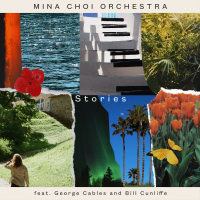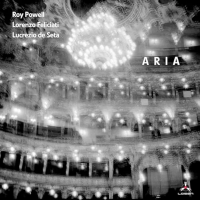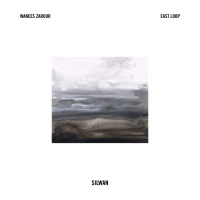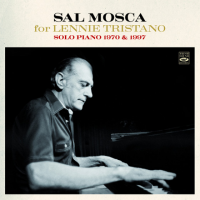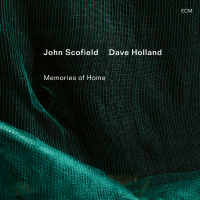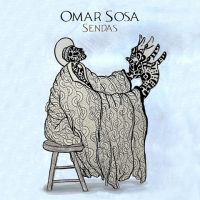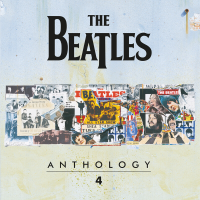Home » Jazz Articles » Album Review » Paul Winter Consort: Miho - Journey to the Mountain
Paul Winter Consort: Miho - Journey to the Mountain
However, with the release of Miho: Journey to the Mountain, Winter may have exceeded himself in his unique musical expression. The music was inspired by the Consort's visit to the unsurpassed beauty of the Miho Museum that nestles in the Shigaraki Mountains near Kyoto, Japan. After being lured there by an ensemble of Japanese drummers, the Shumei Taiko Ensemble, Winter became seduced by the architectural and acoustic beauty of the Miho. Once he met its creator, the architect, I.M.Pei, Winter began to create the cycle of songs inspired by what he calls one of the most beautiful man-made spots on earth, that is cradled by the awesome natural structure of the Shigaraki Mountains.
Winter's suite is divided into two sections. The first, "Many Paths To Paradise," describes his approach and arrival to the Miho and the second, "Shangri-La," provides a moving account of what he sees before him, that is, the museum, its exhibits, acoustics and how they touched his heart and the hearts of the musicians who traveled with him to Japan. From this perspective, Winter has produced music of singular beauty that could only have come from his magical pen. Critical to the success of the music is the soaring glissandi of his soprano saxophone, the equally fluttering majesty of Paul McCandless' various reeds, the percussionists, and the vocals of Arto Tunçboyacıyan.
Charts such as "The Welcome (Song of Miho)" and "Koto Spring" are only surpassed by "Love Is On Your Mind," and only because of Tunçboyacıyan's absolutely stunning vocals/ A magical manipulator of the emotions, the multitalented musician's vocals seem to emerge from the deepest recesses of his soul. The notes undulate in his throat, spinning out into the air thick with sadness and joy. The duet between him and Winter's saxophone is magnificently arbitrated by Don Grusin's keyboards.
The sounds of the earth's creatures—from elephants to honey bees—dapple this extraordinary music as it seduces heart and mind in this ongoing masterpiece tribute to the earth that Winter so loves.
Track Listing
Part 1 (Many Paths to Paradise): Song of Miho; Dawn Raga; Before It's Too Late; Theme from Borodin's "On The Steppes of Central Asia"; Koto; Cedar Grove Dance; Bansuri & Saxophone; Words of Wish Fulfillment; Bendir & Hecklephone; Saxophone Reprise; Singing in the Mountain; Part 2 (Shangri-La): The Welcome (Song of Miho); Koto Spring; Elephant Dance; Whale Raga; Love is Not In Your Mind; Twilight; Andante (Bach); Remembering; Saturday Night in Peach Valley; Song of Miho; Morning Sun.
Personnel
Paul Winter
saxophonePaul Winter: soprano saxophone; Arto Tunçboyacıyan: voice (3, 13, 16, 20), sazabo (3), percussion (20); Dhruba Ghosh: sarangi (2, 15, 20); Yukiho Matsuyama: koto (5, 13); Glen Velez: riq, tar, shakers (6), bendir (9), percussion (14); Café: percussion (8); Paul McCandless: oboe (22), English horn (4, 13, 17), Hecklephone (9), bass clarinet (20); Steve Gorn: bansuri (8, 13, 20, 22); Eugene Friesen: cello (11, 18, 19, 22); Don Grusin: keyboard (2, 4, 6, 16, 17, 21, 22); Jordan Rudess: keyboard (3, 11, 19); Tim Brumfield: organ (8), piano (18); Yangjin Lamu: voice (8); Koide: carillon (12, 21); The Shumei Chorus conducted by Hiromi Matsui (20); The Shumei Taiko Ensemble: drums (14); Worcester Polytechnic Institute Chorus conducted by Wayne Abercrombie (19).
Album information
Title: Miho - Journey to the Mountain | Year Released: 2011 | Record Label: Living Era
Tags
PREVIOUS / NEXT
Support All About Jazz
 All About Jazz has been a pillar of jazz since 1995, championing it as an art form and, more importantly, supporting the musicians who make it. Our enduring commitment has made "AAJ" one of the most culturally important websites of its kind, read by hundreds of thousands of fans, musicians and industry figures every month.
All About Jazz has been a pillar of jazz since 1995, championing it as an art form and, more importantly, supporting the musicians who make it. Our enduring commitment has made "AAJ" one of the most culturally important websites of its kind, read by hundreds of thousands of fans, musicians and industry figures every month.














